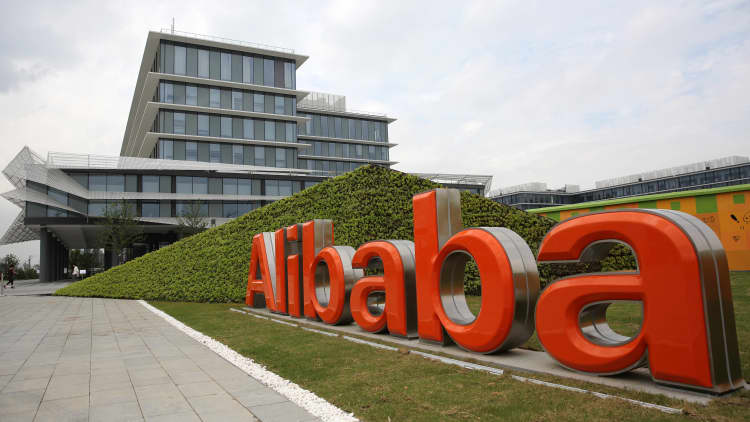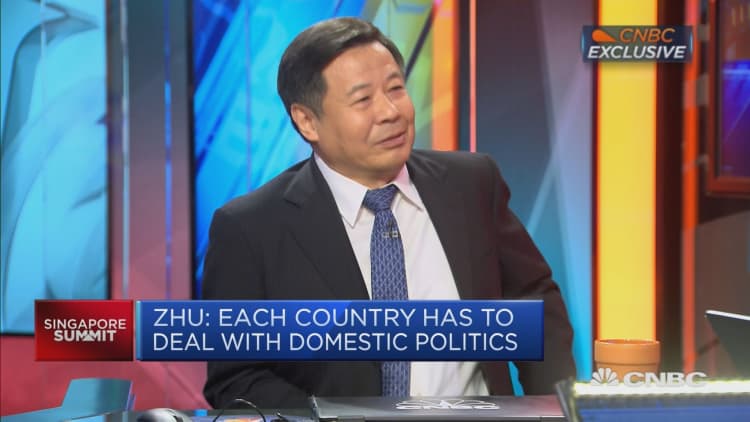Chinese government officials are to be sent to work inside 100 private companies working in the tech hub of Hangzhou, according to local state media.
State media reported over the weekend that the Hangzhou Municipal Government would transfer 100 representatives to "key enterprises such as Alibaba, Geely Holdings and Wahaha."
A full list of the 100 companies included in the initiative was not released.
The directive, which media said was part of the Hangzhou government's "New Manufacturing Plan," is reportedly an attempt to boost manufacturing and bolster the local economy in the eastern province of Zhejiang.
It is the latest strategy signalling the Chinese government's efforts to transform the country's economy. Its core strategy, Made in China 2025, aims to catch China up with its economic rivals in high-value industries such as robotics and aerospace.
Alibaba accepts officials
Hangzhou, an hour by train from Shanghai, is home to several of China's biggest companies. Alibaba's global headquarters, home to 20,000 employees, are located in the city.

When contacted by CNBC the tech giant said the new directives would not disrupt its operations.
"We understand this initiative... aims to foster a better business environment in support of Hangzhou-based enterprises," the company said in a statement Monday. "The government representative will function as a bridge to the private sector and will not interfere with the company's operations."
Spokespersons for automaker Geely and beverage produce Wahaha were not immediately available for comment.
Security concerns
Despite claiming that the move in Hangzhou is no more than an "innovative" economic strategy, inserting government officials inside private firms further raises concerns about state influence at Chinese companies.
Under Chinese law, organizations can be forced to hand over data to the state if requested to do so.

Chinese telecoms giant Huawei has been at the center of an international security debate due to concerns that these laws could enable state espionage if the company is allowed access to global 5G internet infrastructure.
Huawei has repeatedly denied the claims made against it, but several countries, including Australia, New Zealand and Japan, have barred Huawei from supplying components for 5G networks.
The U.S., which has led the push to ban Huawei equipment from 5G frameworks, has urged its allies to bar the company from their domestic networks, warning them of national security risks.
The Chinese state has denied claims it can compel companies to share information, but placing hundreds of government officials within private firms could renew foreign concerns about the level of power the state has over domestic corporations.
— Reuters contributed to this article.

